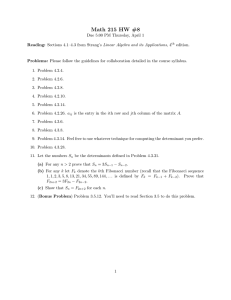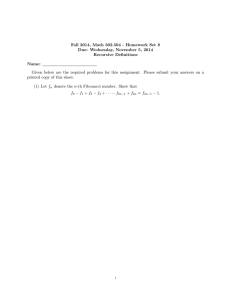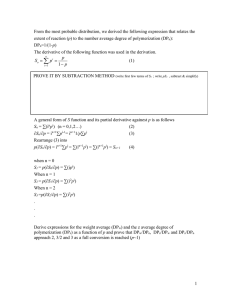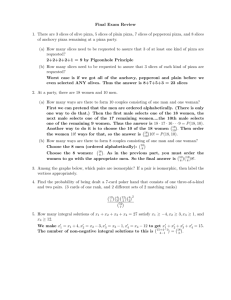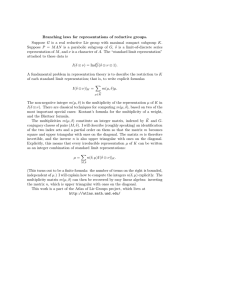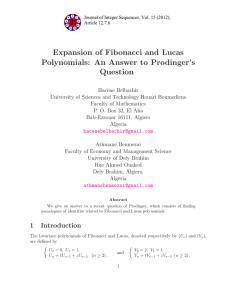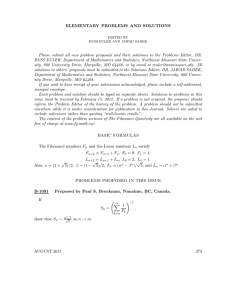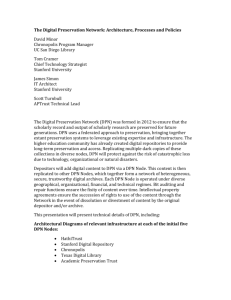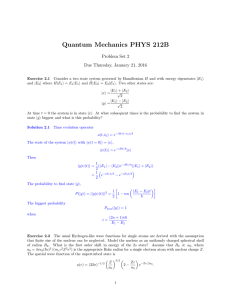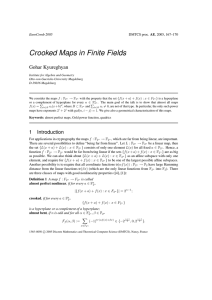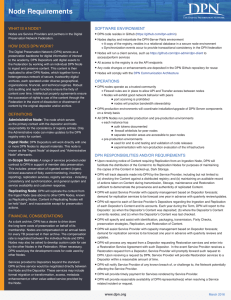ONE PROPERTY OF TRIANGULAR NUMBERS * Introduction 1, 3, 8, 120
advertisement
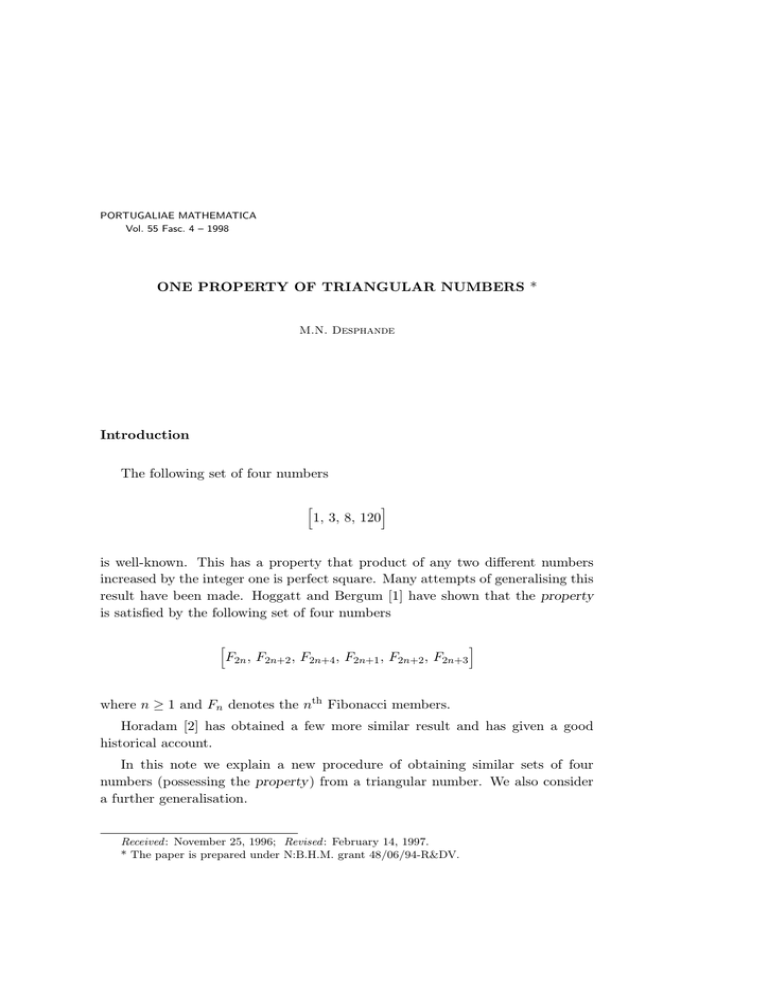
PORTUGALIAE MATHEMATICA Vol. 55 Fasc. 4 – 1998 ONE PROPERTY OF TRIANGULAR NUMBERS * M.N. Desphande Introduction The following set of four numbers h 1, 3, 8, 120 i is well-known. This has a property that product of any two different numbers increased by the integer one is perfect square. Many attempts of generalising this result have been made. Hoggatt and Bergum [1] have shown that the property is satisfied by the following set of four numbers h F2n , F2n+2 , F2n+4 , F2n+1 , F2n+2 , F2n+3 i where n ≥ 1 and Fn denotes the nth Fibonacci members. Horadam [2] has obtained a few more similar result and has given a good historical account. In this note we explain a new procedure of obtaining similar sets of four numbers (possessing the property) from a triangular number. We also consider a further generalisation. Received : November 25, 1996; Revised : February 14, 1997. * The paper is prepared under N:B.H.M. grant 48/06/94-R&DV. 382 M.N. DESPHANDE New procedure Let T be any triangular number (It may be recalled that T = m(m + 1)/2, m being a positive integer). Further more let a and b be two real numbers such that 1) a < b, 2) a b = 2 T and 3) 2a and 2b are positive integers. By s we shall denote the positive square root of 8T + 1. (It is obvious that s is an integer). Theorem. The set of the following four numbers satisfies the property mentioned in the Introduction h i 2a, 2b, 2a + 2b + 2s, 8s3 + 8s2 (a + b) − 4s . (1) Proof. By using the fact that 4ab = 8T = s2 − 1 it is easy to show that 1) (2a) (2b) + 1 = s2 , 2) 2a (2a + 2b + 2s) + 1 = (2a + s)2 , 3) 2a 8s3 + 8s2 (a + b) − 4s + 1 = (2s2 + 4as − 1)2 , 4) 2b (2a + 2b + 2s) + 1 = (2b + s2 ) , 5) 2b 8s3 + 8s2 (a + b) − 4s + 1 = (2s2 + 4bs − 1)2 , 6) ³ ´ ³ ´ ³ ´ ³ (2a + 2b + 2s) 8s3 + 8s2 (a + b) − 4s + 1 = 4s2 + 4s (a + b) − 1 Illustration. Let T = 6 then s = 7; we get 5 sets a b set 0.5 24 (1, 48, 63, 12320) 1 12 (2, 24, 40, , 7812) 1.5 8 (3, 16, 33, 6440) 2 6 (4, 12, 30, 5852) 3 4 (6, 8, 28, 5460) ´2 . ONE PROPERTY OF TRIANGULAR NUMBERS 383 Further extension Let n be a positive integer and a and b be real numbers such that 1) a < b 2) 2a and 2b are positive integers and 3) 4ab + n is a perfect square, say u2 . We consider the following set of four positive integers ³ (2) ´ 2a, 2b, 2a + 2b + 2u, 8u3 + 8u2 (a + b) − 4un . This set has the property that the product of any two different numbers of the set increased by n or n2 is a perfect square. For notational convenience, let us denote these numbers by (a1 , a2 , a3 , A1 ). Then we can easily check that the following six terms are perfect squares a1 a2 + n, a1 A1 + n2 , a1 a3 + n, a2 A1 + n2 , a 2 a3 + n a3 A1 + n 2 Remarks. 1) The set (1) and the set (2) have many similar things. 2) Such properties were considered by Horadam [2]. 3) For n = 1 this result coincides with the result obtained in the earlier section. ACKNOWLEDGEMENT – The author is thankful to the referee. REFERENCES [1] Hoggatt, V.E. (Jr.) and Bergum, G.E. – A problem of Fermat and the Fibonacci sequence, The Fibonacci Quarterly, 15 (1977), 323–330. [2] Horadam, A.F. – Generalisation of a result of Morgado, Portugaliae Mathematica, 44 (1987), 131–136. M.N. Desphande, Institute of Science, Nagpur – 440001 (M.S.) – INDIA
